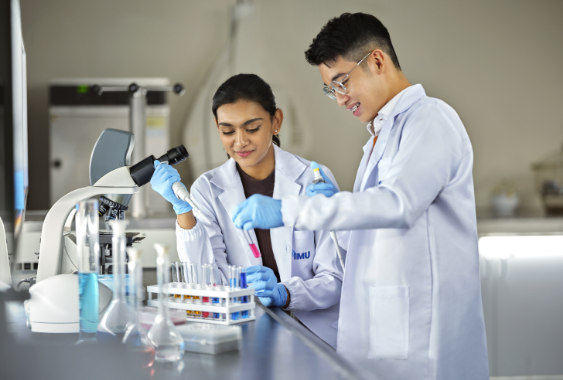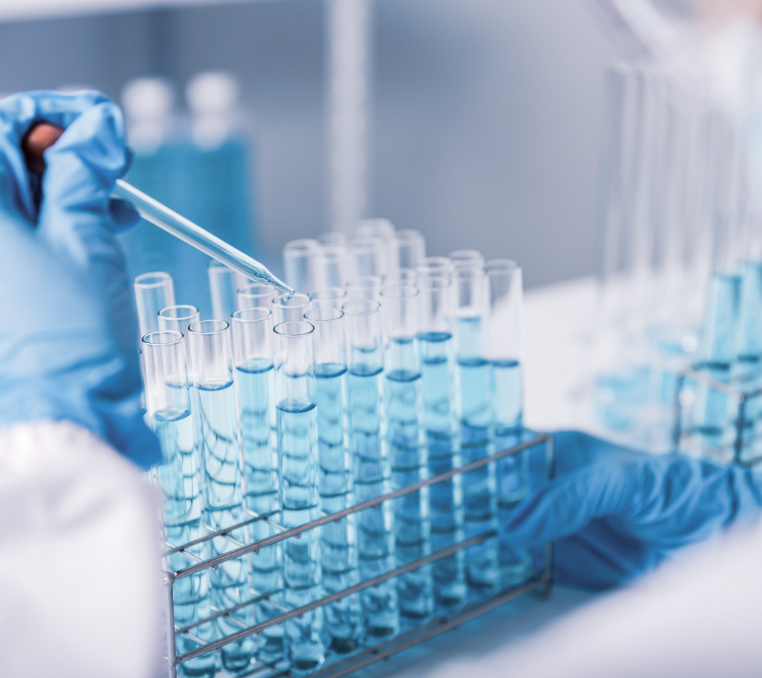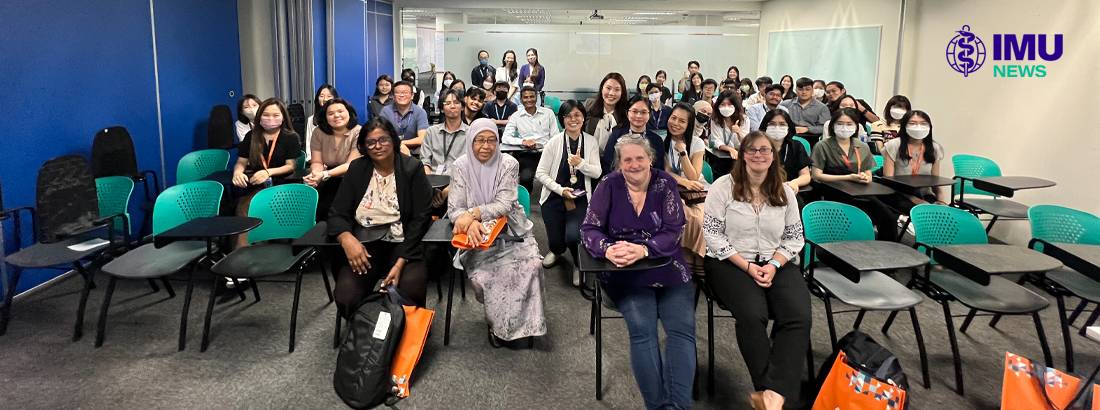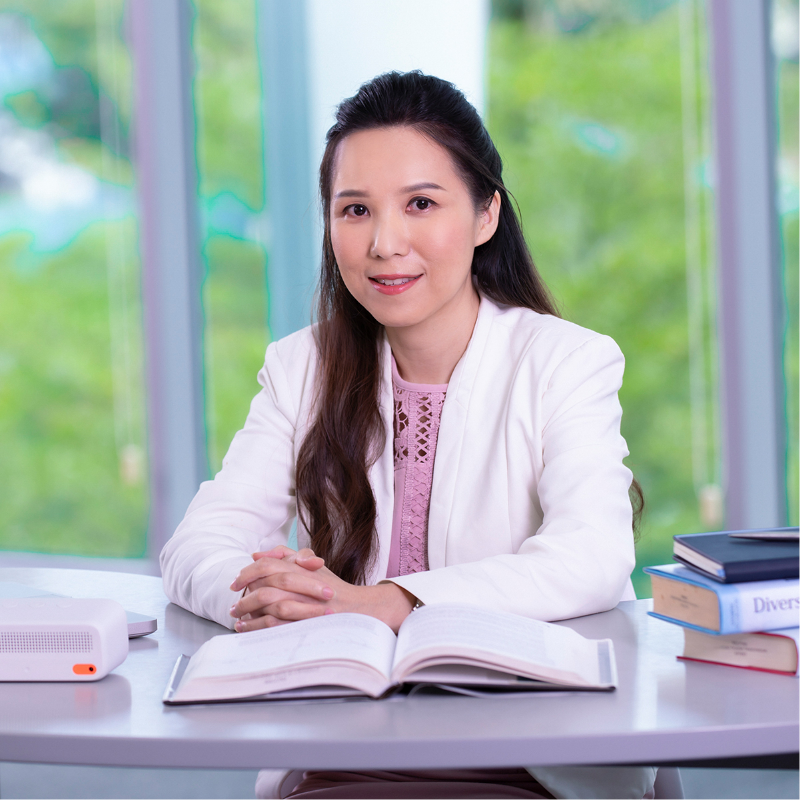Master of Science in Analytical and Pharmaceutical Chemistry
KPT/JPT(R2-CDL/442/7/0001)01/2027 | MQA/FA1191
KPT/JPT(N-DL/442/7/0022)02/2026 | MQA/PSA11367
Commencement
Mar & Sep
Degree/Duration
Master of Science in Analytical and Pharmaceutical Chemistry (IMU):
1 year (Full-time)
2 – 6 years (Part-time)
Develop Your Expertise in Pharmaceutical Science

Expand your horizons and deepen your expertise in Analytical and Pharmaceutical Chemistry. Delve into the foundational principles and practical applications of analytical chemistry, while also exploring advanced topics in pharmaceutical analysis and drug discovery. Our programme offers a unique blend of coursework and research opportunities, fostering collaborations with esteemed institutions both locally and internationally. Our flexible mixed-mode master’s programme provides industry-recognised training to elevate your professional credentials and unlock a world of new possibilities.
Why Study Analytical & Pharmaceutical Chemistry (MSc) at IMU?
01
An Established Private Healthcare University
IMU is Malaysia’s first and most established private medical and healthcare university with over 30 years of dedicated focus in healthcare education. The IMU is placed under the Competitive (Berdaya Saing) category under SETARA 2022 for the third consecutive year.
02
Pursue A Master’s Degree While Working Full Time
Face-to-face teaching and learning activities are conducted on weekends for the convenience of students who have personal or work commitments on weekdays. Students have the option to conduct the research project at their workplace, and the flexibility to choose the optimum number of credits to take each semester to suit their personal, work and study commitments. ODL mode offers additional flexibility to study out of campus.
03
Curriculum Benchmarked to International Standards
The curriculum has been developed to meet high international standards and stringent Malaysian Qualifications Agency (MQA) standards. The programme is accredited by the Royal Society of Chemistry, UK. The Royal Society of Chemistry is the world’s leading chemistry community and the oldest chemical society in the world.
04
Renowned and Highly Experienced Faculty
Students will be taught and supervised by staff who are experts in their field with well-established reputations nationally and internationally. The academic community of IMU pursues and achieves excellence in a wide range of research activities. Many of them present their research findings in international conferences to keep up to date with the latest development in specialised areas. They also publish their findings in international peer-reviewed journals.
05
Research Partnerships (Analytical)
Students will benefit from IMU’s national and international research collaborations with renowned institutions in areas such as drug discovery, design and development, natural products, drug synthesis, pharmaceutical and biomedical analysis.
Entry Requirements
Academic Requirements
Applicants are required to have obtained:
- A Bachelor Degree in related discipline with a minimum cGPA of 2.75 or equivalent, as accepted by theUniversity’s Senate; or
- A Bachelor Degree in related discipline with a minimum cGPA of 2.50, but not meeting cGPA 2.75, can be accepted subject to rigorous internal assessment; or
- A Bachelor’s Degree in the field or related fields or equivalent with minimum CGPA of 2.00 and not meeting CGPA of 2.50, can be accepted subject to a minimum of 5 years working experience in the relevant field and rigorous internal assessment.
English Requirements
For Malaysian Students
Not applicable
For International Students
- IELTS : Band score 5.0; or
- TOEFL (iBT) : Overall score of 42; or
- Cambridge English : Advanced (CAE) : Overall score of 154; or
- Cambridge English : Proficiency (CPE) : Overall score of 154; or
- Cambridge Linguaskill : Overall score of 160; or
- Pearson Test of English (PTE) : Overall score of 47;
The following categories of students are exempted from the above requirements:
- International students from countries in which English is the first language.
- International students who graduated from any Malaysian or other institutions where the curriculum is delivered in English.
Note: Please note that achieving the minimum Entry and English requirements as stated does not guarantee you admission into any of IMU’s programmes. Please refer to our Student Admissions Policy for more information.
Programme Structure
| Coursework Modules | Research Projects |
|---|---|
| MAPC301: Modern Analytical Techniques for Qualitative Analysis (4 credits) | MAPC307: Research Project I (4 credits) |
| MAPC302: Modern Analytical Techniques for Quantitative Analysis (4 credits) | MAPC308: Research Project II (18 credits) |
| MAPC303: Principles of Drug Discovery (4 credits) | |
| MAPC304: Computational Drug Discovery Techniques (4 credits) | |
| MAPC305: Quality Management & Regulatory Systems (2 credits) | |
| MAPC306: Research Methodology & Scientific Writing (3 credits) |
To graduate from this programme, eight core modules (total 43 credits) must be completed. The modules consist of coursework modules (21 credits) and research projects (22 credits).
Fee Structure
| Fee | Malaysian Student (RM) | International Student (RM) |
|---|---|---|
| Application Fee | 150 | 500 |
| Registration Fee | 1,100 | 3,400 |
| Refundable Caution Deposit | 2,000 | 2,000 |
| Student Association Fee per Semester | 40 | 40 |
- All IMU Alumni who are self-funding their postgraduate studies and meet the eligibility criteria will be eligible for a bursary of 15%.
- Application fee is payable upon submission of application.
- Registration fee and refundable caution deposit is payable upon acceptance of the offer letter issued by the IMU Admissions Office.
- Students must adhere to the Policy on Payment of Fees
- For information on Student Visa Administration fee, please refer to Visa and Immigration on the IMU website, www.imu.edu.my
- Fee payable per semester are subject to the number of credits registered
- **Subject to annual increase
| Study Mode | Malaysian Student Tuition Fees |
International Student Tuition Fees |
|---|---|---|
| Master of Science | ||
| Conventional No. of credit hour: 21 hours |
RM1,150 per credit hour, RM24,150 total fee |
RM1,300 per credit hour, RM27,300 total fee |
| Research Paper No. of credit hour: 22 hours |
RM1,150 per credit hour, RM25,300 total fee |
RM1,300 per credit hour, RM28,600 total fee |
| RM49,450 total fee | RM55,900 total fee | |
| Master of Science | ||
| Open & Distance Learning (ODL) No. of credit hour: 21 hours |
RM930 per credit hour, RM19,530 total fee |
RM930 per credit hour, RM19,530 total fee |
| Research Paper No. of credit hour: 22 hours |
RM1,150 per credit hour, RM25,300 total fee |
RM1,150 per credit hour, RM25,300 total fee |
| RM44,830 total fee | RM44,830 total fee | |
Hear from Our Students and Alumni
Frequently Asked Questions
- Verified copies of your academic qualifications
- Evidence of English language proficiency
- A copy of your MyKad or the identification page of your passport
- Apply knowledge and concepts in analytical and pharmaceutical chemistry to solve theoretical and practical problems in the relevant fields.
- Apply and adapt critical thinking, problem solving and scientific skills to find solutions to unfamiliar and complex issues in chemical, pharmaceutical and related industries.
- Critically evaluate information from various sources and use it appropriately to practice self-directed lifelong learning.
- Develop and validate analytical methods to perform qualitative and quantitative analysis by utilising appropriate instrumentation and techniques.
- Demonstrate productive working relationships as a team lead or member and communicate effectively by writing clear, concise and orderly documents and/or giving clear oral presentations.
- Demonstrate appropriate professional and social skills in the practice of chemistry or advancement of the chemical and pharmaceutical sciences.
- Plan, organise and carry out projects systematically and deliver results in the areas of analytical and pharmaceutical sciences.
- Demonstrate high standards of professional ethics and responsibilities by complying with relevant codes of conduct and practice.
- Professionals who are competent in the application of analytical and pharmaceutical sciences in a wide range of industries.
- Professionals who practice with personal autonomy, integrating ethics, professionalism and social skills into their interactions with stakeholders.
- Professionals who are versatile team leaders and communicators, providing scientific solutions to achieve the organisational goals.
- Professionals who are tenacious in seeking solutions to manage complex issues in analytical and pharmaceutical sciences through continuous advancement of knowledge and skills in their field of practice.
- A bachelor’s degree in related discipline with minimum CGPA of 2.75 or equivalent, as accepted by the University’s Senate; or
- A bachelor’s degree in related discipline or equivalent with minimum CGPA of 2.50 and not meeting CGPA of 2.75, can be accepted subject to rigorous internal assessment; or
- A bachelor’s degree in related discipline or equivalent not meeting CGPA of 2.50, can be accepted subject to a minimum of 5 years working experience in relevant field.
Read Our Latest News & Stories
A Word From The Programme Director
A Word From The Programme Director
Have Questions? Ask Us
Explore Postgraduate Programmes Offered

 2024.png)












